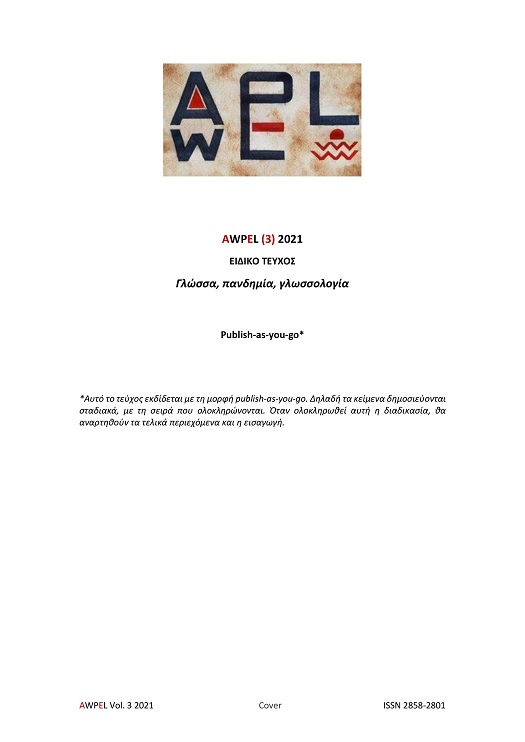Exploring the collateral impact of the COVID-19 pandemic on communication: Displaying affect in email discourse
Аннотация
The present study explores how the COVID-19 pandemic has shaped the linguistic patterns found in computed-mediated discourse, drawing on a corpus of emails written by university students and addressing their lecturers. The analysis shows that affect is a key component of the new stylistic practice that has emerged in email discourse during the pandemic and reveals the ways in which manifestations of empathy are linked to politeness strategies. The first part of the analysis targets lexical and grammatical features/structures that refer to the pandemic and well-being and display affect in email discourse, and it establishes a link between this stylistic practice and dominant public discourses about the pandemic. The second part of the analysis zooms in on a particular aspect of affect, i.e., empathy, and examines pertinent politeness strategies used by students. Moreover, an attempt is made to shed some light on the potential interplay between empathy, vulnerability, and politeness.
Article Details
- Как цитировать
-
Alvanoudi, A., & Desilla, L. (2022). Exploring the collateral impact of the COVID-19 pandemic on communication:: Displaying affect in email discourse. Aegean Working Papers in Ethnographic Linguistics, 3, 230–246. извлечено от https://ejournals.epublishing.ekt.gr/index.php/awpel/article/view/30237
- Раздел
- Articles

Это произведение доступно по лицензии Creative Commons «Attribution» («Атрибуция») 4.0 Всемирная.
Authors who publish with this journal agree to the following terms:
Authors retain copyright and grant the journal right of first publication with the work simultaneously licensed under a Creative Commons Attribution licence that allows others to share the work with an acknowledgement of the work's authorship and initial publication in this journal.
Authors are able to enter into separate, additional contractual arrangements for the non-exclusive distribution of the journal's published version of the work (e.g. post it to an institutional repository or publish it in a book), with an acknowledgement of its initial publication in this journal.
Authors are permitted and encouraged to post their work online (preferably in institutional repositories or on their website) prior to and during the submission process, as it can lead to productive exchanges, as well as earlier and greater citation of published work (See The Effect of Open Access).



